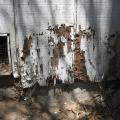9 Important Inspections to Protect Your Commercial Property
Unplanned downtime from structural damage or costly repairs could set your business back as much as $9,000 per minute. Fortunately, these disruptions can be avoided when you consistently prioritize commercial building inspections. With that in mind, here are nine types of commercial inspections to work into your schedule.
1. Roofing
During a roof inspection, experts will look for any signs of excessive wear, leaks, and other concerns that can endanger your operations. This inspection will also lower the risk of water damage to critical business equipment or merchandise and maintain a safe work environment. Generally, have a professional inspect your roof once or twice a year. But do not wait until a problem arises—be proactive to ensure your roof is in top-notch condition.
2. Electrical
Faulty electrical equipment, circuits, or wires can seriously threaten your business. These issues can lead to fires, injuries, or other emergencies. Schedule regular inspections with licensed electricians to check for circuit overloads, wire damage, or equipment malfunctions. You’ll also need to have an electrical inspection if you make significant changes to the interior or exterior of your building.
3. HVAC Units
Optimal heating, ventilation, and air conditioning (HVAC) functions will help you maintain safe indoor air quality and the comfort of your team. Schedule routine HVAC unit inspections and maintenance tasks, such as filter replacement, duct cleaning, and system calibration, to ensure every component works as it should. The sooner you can detect HVAC problems, the easier it will be to avoid a major system failure. Proactive maintenance will also minimize repair costs and ensure your workplace remains cool and comfortable.
4. Plumbing
The average commercial water damage claim is roughly $24,000. Leaks, clogs, and faulty plumbing fixtures can result in harmful water damage, mold growth, and unsanitary working conditions, so conduct inspections to ensure your plumbing infrastructure is still in working order. If an employee reports a concern, hire a specialist to resolve it immediately. DIY repairs have no place in a commercial facility—use a licensed professional to avoid business liability and mitigate the risks of expensive water damage.
5. Fire Safety
During a fire safety check, licensed technicians examine the condition of fire extinguishers, smoke alarms, and sprinkler systems. These checks ensure compliance and reduce the risk of a major fire incident in your workplace. During this process, train your team in the latest safety protocols and evacuation procedures. When you combine functional systems with effective training, you’ll create a safer environment for all occupants.
6. Security System
If you manage sensitive data or high-value commodities, protect them with security measures. However, it’s not enough to simply install a robust system—perform regular checks to ensure its efficacy. Test the various security features, such as door locks, motion sensors, surveillance cameras, access control systems, and alarms.
7. Structural
Over time, a building’s structural components can deteriorate due to weather conditions, subpar construction, or natural wear and tear. To prevent this outcome, schedule inspections with qualified engineers to evaluate the foundation, walls, columns, and other load-bearing elements. If you uncover structural deficiencies, resolve them as soon as possible. Otherwise, you could expose team members to unsafe conditions or unnecessary risks.
8. Exterior
The exterior of your building can encounter severe weather conditions, harsh temperatures, or other environmental factors. Inspecting the windows, doors, and exterior finishes is vital to identify signs of deterioration. Do not just look for functional deformities—aesthetic deterioration can also impact how customers perceive your business.
9. Accessibility
Make sure your commercial building complies with all current accessibility regulations set by the Americans with Disabilities Act. Evaluate accessibility features, such as ramps, signs, entries, parking lots, and hallways, then resolve any barriers to accessibility as soon as possible. You’ll want to ensure that employees, contractors, and customers have the right accommodations to enter, exit, and navigate the facility safely.
Schedule these Important Building Inspections Today
Remember: do not wait to conduct these crucial inspections until you encounter a significant issue. Instead, be proactive about facility maintenance and take the necessary steps to create an optimal work environment. Overall, these preemptive inspections will keep your costs down and ensure business continuity.
More to Read:
Previous Posts:








